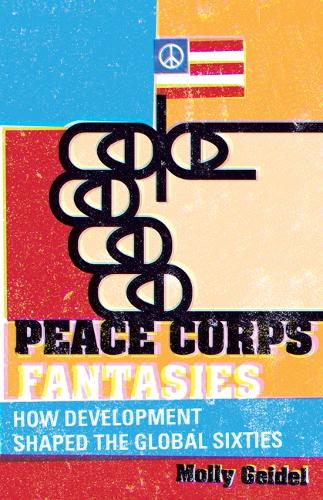
Peace Corps Fantasies: How Development Shaped the Global Sixties
(Paperback)
Publishing Details
Peace Corps Fantasies: How Development Shaped the Global Sixties
By (Author) Molly Geidel
University of Minnesota Press
University of Minnesota Press
1st December 2015
United States
Classifications
General
Non Fiction
361.6097309046
Physical Properties
Paperback
320
Width 140mm, Height 216mm, Spine 38mm
Description
To tens of thousands of volunteers in its first decade, the Peace Corps was the toughest job youll ever love. In the United States popular imagination to this day, it is a symbol of selfless altruism and the most successful program of John F. Kennedys presidency. But in her provocative new cultural history of the 1960s Peace Corps, Molly Geidel argues that the agencys representative development ventures also legitimated the violent exercise of American power around the world and the destruction of indigenous ways of life.
In the 1960s, the practice of development work, embodied by iconic Peace Corps volunteers, allowed U.S. policy makers to manage global inequality while assuaging their own gendered anxieties about postwar affluence. Geidel traces how modernization theorists used the Peace Corps to craft the archetype of the heroic development worker: a ruggedly masculine figure who would inspire individuals and communities to abandon traditional lifestyles and seek integration into the global capitalist system.
Drawing on original archival and ethnographic research, Geidel analyzes how Peace Corps volunteers struggled to apply these ideals. The book focuses on the case of Bolivia, where indigenous nationalist movements dramatically expelled the Peace Corps in 1971. She also shows how Peace Corps development ideology shaped domestic and transnational social protest, including U.S. civil rights, black nationalist, and antiwar movements.
Reviews
"Peace Corps Fantasies illuminates the normative force and gendered imperatives of U. S. endeavors to fortify liberal internationalism against anticolonial struggles for freedom."Alyosha Goldstein, University of New Mexico
"This provocative, well-researched, theory-driven cultural history is on solid ground in asserting that Peace Corps volunteers were agents of a Cold War strategy."CHOICE
"Scholars of development should welcome this effort to critique the Peace Corps and provide insights into some neglected narratives, while others may find their interest sufficiently piqued to investigate the books theoretical foundation."Journal of American History
"Geidel brings a unique perspective on how the concept of masculinity and dominance shaped the development narrative. The intricacy with which she ties together the domestic and international Peace Corps actions is admirable and makes this a useful text for scholars of modernization and development, the United States in the 1960s, and ethnic and gender studies."H-Net Reviews
Author Bio
Molly Geidel teaches American Studies at the University of Manchester, UK.
